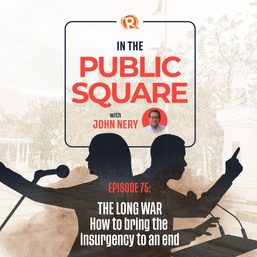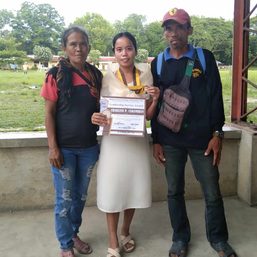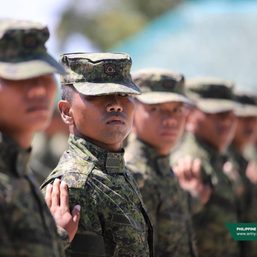SUMMARY
This is AI generated summarization, which may have errors. For context, always refer to the full article.
![[OPINION] Why the proscription case against the CPP-NPA failed](https://www.rappler.com/tachyon/r3-assets/612F469A6EA84F6BAE882D2B94A4B421/img/A54B738E1F9B450F83FBB4C11C60C73D/defining-terrorism-october-21-2019-01.jpg)
September 28 saw the resolution of a four-year long petition seeking the proscription of the Communist Party of the Philippines and the New People’s Army, jointly referred to as the CPP-NPA, as a terrorist organization under the Human Security Act (HSA) of 2007. Over the course of a solidly researched 135-page decision, Judge Marlo Magdoza-Malagar parses the evidence put forth by the petitioner, which is no easy task in itself as there is a significant laundry list put forth for consideration, to ultimately answer the question in the negative. Her conclusions are well-supported. It will be hailed for decades to come for its brilliance and historic nature.
In response, former Undersecretary Lorraine Badoy, the ex spokesperson of the National Task Force to End Local Communist Armed Conflict (NTEF-ELAC), attacked the good judge viciously and called for her murder. She is now being asked by the Supreme Court to show cause why she should not be cited for contempt of the judiciary.
The proscription petition
A quick summary of the petition from its filing to this momentous decision, including procedural questions, is thus:
The petition was filed on February 21, 2018 by the Department of Justice on behalf of the Republic against the CPP-NPA. At the time, the relevant law was R.A. 9372, otherwise known as the Security Act of 2007 or, in brief, HSA. Though the HSA was expressly repealed in 2020 by R.A. 11479 or the Anti-Terrorism Act of 2020 (ATA) the court retained jurisdiction due to the saving clause in the repeal that dictated that all pending actions under the HSA remained valid and effective.
The original petition named some 600 alleged officers and members as well as seven alleged members and their addresses through which summons and court processes could be served. In February and March of 2018, respectively, the summons were issued and served upon the seven named personalities. These named individuals and others among the whopping 600 who were named in the body of the petition disavowed any connections to the CPP-NPA. They alleged red-tagging, which will be delved into further in the second article in this series.
The summons were recalled by the Court in a July 2018 resolution on the ground that the persons named had denied any links to the CPP-NPA and the petitioner failed to prove unassailable links to the organization to overcome the denouncement.
To be clear, though individual members of the CPP-NPA were named, the petition for prescription was directed at the respondent organization as a whole. The naming of individuals, who must have known and undeniable links with the CPP-NPA, was for the service of summons, as organizations can only act through their members and representatives.
The Amended Petition filed by the Department of Justice (DOJ) on January 3, 2019 then named known officers of the organization, including Jose Maria Sison and Antonio Cabanatan. Of the eight officers named, only these two were proven to have established links to the CPP-NPA. The amended petition was admitted by the Court in February that same year. In June 2019, a third amended petition was filed limiting again the number of people to be served with summons. The list of names had been pared down again.
Summons were served upon the respondent organization through publication in the People’s Journal Tonight on February 8, 2020, nearly a year after the Court’s last order allowing for summons to be served in this manner. The petition had actually been dismissed for this failure on the part of the petitioner, but was reinstated a day before the summons was finally served upon motion of the petitioner. In August of 2020, for failure to file a responsive pleading, the respondent organization was declared in default and the petitioner then presented its evidence ex-parte.
Evidence presented by the petitioner consisted of no less than 17 witness accounts and documentary evidence identified by the witnesses.
The petition sought prescription against the CPP-NPA for having committed the following “terrorist acts”:
- Extortion in the collection of revolutionary taxes;
- Ambuscades of the PNP and AFP personnel resulting [in] deaths and physical injuries;
- Atrocities against civilians;
- Attacks on business establishments resulting [in] destruction of property and seizure of firearms
- Armed attacks on PNP stations.
Passing judgement on ‘terrorist acts’
Section 3 of the HSA enumerates the criminal acts punishable under the Revised Penal Code and other special laws which may be classified as terrorist acts. It was thus up to the Court to determine if firstly, the evidence presented by the petitioner substantiates their claim that the CPP-NPA had even committed these alleged acts, and secondly, whether these acts if proven as a fact satisfy the definition of terrorist acts under the HSA and thus lead to the proscription of the CPP-NPA as a terrorist organization.
It is important for laymen and those not familiar with the law to understand how terrorism, despite how intuitive it seems to identify, has not been given a concrete definition by either the international community or within the Philippine jurisdiction. Prior to the enactment of the HSA, the word “terrorism” had appeared only once in our criminal laws in President Ferdinand Marcos’ P.D. No. 1835, which was enacted during the Martial Law regime to criminalize terrorism as a means to overthrow the government. The subsequent E.O. No. 167 enacted by President Corazon Aquino in 1985, which repealed P.D. No. 1835, similarly punished terrorism for its subversion. The same law outlawed the Communist Party of the Philippines. However, both of these laws did not define “acts of terrorism.”
Article 17 of the HSA, which provides for the judicial process of proscription, provides the following definitional elements of a terrorist organization, association, or group of persons:
- An organization, association, or group of persons
- Organized for the purpose of engaging in terrorism; or,
- If not so organized –
- Actually uses acts enumerated in the Act in order to terrorize; or,
- Actually uses acts to sow and create a condition of widespread and extraordinary fear and panic among the populace
- With the purpose of coercing the government to give in to an unlawful demand.
Thus, it is by this metric and this metric alone that the Court can measure the CPP-NPA for proscription under the HSA. The Court had a hefty task in its hands as, despite the above enumeration, the definition of terrorism under the HSA is, as the Supreme Court declared in Southern Hemisphere v. Anti-Terrorism Council, still “intrinsically vague” and “impermissibly broad.”
The issues at the heart of the petition are now clear: whether or not the CPP-NPA was organized for the purpose of engaging in terrorism and if not, whether the acts alleged by the petitioner to be committed by them were for the purpose to coerce the government to give into an unlawful demand. – Rappler.com
Tony La Viña teaches law and is former dean of the Ateneo School of Government.
Ally Munda is a law student at the University of the Philippines Diliman. She has a degree in Environmental Science from the Ateneo de Manila University and has joined the Manila Observatory as a legal researcher.
Add a comment
How does this make you feel?
![[Newsstand] Time to negotiate peace again with the CPP-NPA](https://www.rappler.com/tachyon/2024/05/negotiate-peace-again-may-10-2024.jpg?resize=257%2C257&crop_strategy=attention)




There are no comments yet. Add your comment to start the conversation.